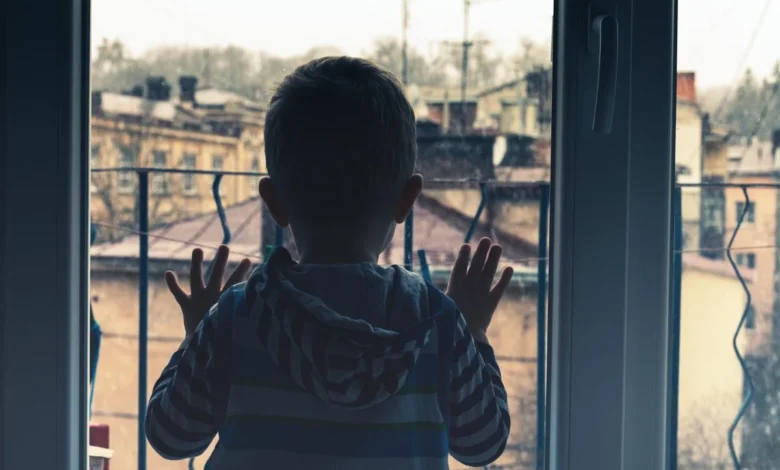US officially condemns Russia’s abduction of Ukrainian children: bipartisan resolution submitted to Congress

Since the beginning of Russia’s full-scale invasion of Ukraine, the world has witnessed not only war crimes in the form of shelling, torture and genocide, but also the systematic kidnapping of Ukrainian children. This phenomenon, which has already been repeatedly recognized as a violation of international law, is now taking on an even clearer political definition. The US Congress has prepared a bipartisan resolution that officially condemns the abduction and forcible transfer of Ukrainian children by Russia. This step not only demonstrates support for Ukraine, but also establishes a clear moral and legal position of the United States regarding the actions of the Kremlin.
Bipartisan resolution in the US Congress
As reported in the Committee on Foreign Affairs of the US House of Representatives, on June 30, 2025, members of the Committee on Foreign Affairs of the US House of Representatives, Gregory Meeks and Michael McCaul, presented for consideration a resolution condemning the systematic abduction and deportation of Ukrainian children by Russia. In the Senate, a similar initiative was supported by Senators Chuck Grassley (Republican, Iowa) and Amy Klobuchar (Democrat, Minnesota), which proves the cross-party consensus on this topic.
The text of the resolution emphasizes that the forced displacement of children is a war crime and that the return of abducted children should be one of the mandatory conditions for achieving peace. Gregory Meeks said the United States has a moral obligation to condemn the Kremlin’s crimes and demand the immediate return of all children removed from Ukraine.
Assessment of the scope of the crime
According to Michael McCall, Russia has abducted at least 19,500 Ukrainian children since the start of the full-scale war. But the real scale of this crime may be much larger — some sources estimate the number of deportees at 200,000. These children were deprived of their identity: they were forced to give up their native language, their names and citizenship were changed, they were adopted into Russian families and sometimes they were trained to serve in the ranks of the Russian armed forces.
In the message of the Ukrainian authorities, it is indicated that at least 19,546 cases of illegal movement of children have been officially recorded to date. Of them, only 1,274 children managed to return home. The vast majority still remain in the occupied territories or deep in Russia.
International legal context
On March 17, 2023, the International Criminal Court issued an arrest warrant for the President of Russia, Vladimir Putin, and the Commissioner for Children’s Rights, Maria Lvova-Belova. They are suspected of being directly involved in organizing the illegal deportation of Ukrainian children. This legal step was unprecedented in scale and symbolism: for the first time, the head of a permanent member of the UN Security Council was declared internationally wanted for child abduction.
In 2023, 49 countries of the world issued a joint statement condemning Russian propaganda aimed at legitimizing kidnappings. Great Britain then blocked the broadcast of Lvova-Belova’s speech at a meeting of the UN Security Council, calling on her to answer in court.
In this context, the report of the US State Department on human trafficking for 2024 deserves special attention. The document notes that Russia is one of the world’s worst centers for human trafficking. The report highlighted the existence of public policies or schemes involving the use or recruitment of children, including as soldiers. This additionally confirms the systematic nature of crimes that are currently the focus of investigations by international organizations.
Child return mechanisms: a problem without an algorithm
The Ukrainian Office of the Prosecutor General recognizes that there is currently no single transparent mechanism for the return of deported children. The procedure often depends on the help of volunteers, international organizations or intermediaries. In many cases, parents are forced to navigate the Russian bureaucratic system on their own, putting themselves at risk.
According to Daria Gerasimchuk, the Presidential Commissioner for Children’s Rights, accurate accounting of the abducted is complicated due to the occupation. Some of the children end up in the registers only after the families submit applications — which sometimes happens a long time after the removal.
The bipartisan resolution of the US Congress is an important signal not only for Ukrainians, but also for the entire international community. It captures the political will of the United States to call a spade a spade: child abduction is not a cultural exchange or evacuation, but a serious war crime. And even in the diplomatic quest for peace, the US insists there can be no deal that leaves these crimes unanswered. The return of every child must be a condition for a just end to the war. At the same time, there is a need to create a sustainable international mechanism that would guarantee the return of all deportees and their reintegration into Ukrainian society.





